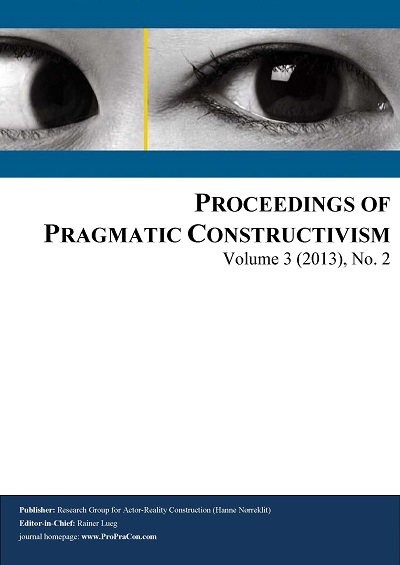Occupational identities of management accountants: Situated identity regulation and work
DOI:
https://doi.org/10.7146/propracon.v3i2.18776Abstract
This paper investigates occupational identities of management accountants. It casts light on the identity process consisting of identity regulation, work, and self-identity, wherein organizational identity regulation is drawn to the fore. To theorize this process, the paper draws on Alvesson and Willmott's (2002) and on Giddens (1991). The accounting literature provides evidence that the role of accountants undergoes changes as a result of "new" technologies, competition, globalization and organizational managers' demands (cf. Granlund and Lukka, 1998). This paper takes a different route by focusing on how one organization fosters the controlling of occupational identities. I argue in line with others, i.e. Morales and Lambert (2013), that accounting practices are constitutive for occupational identities. However, this relationship is not straightforward. It is characterized by the tension between the actual work and the professional ideals. In order to safeguard a consistent identity accountants engage in identity work. The results show that the combination of different means of identity regulation creates a strong repressive framework for accounting practices reducing the freedom to act and judge as a professional. It contributes to a better understanding of how accountants' identities are subjected to control while simultaneously challenging the positive role associated with IT systems.
Downloads
Published
How to Cite
Issue
Section
License
Previous and future use of the work
ProPraCon assumes the non-exclusive rights to publish and store the work of its authors, once they have consented to a publication. Since the rights to publish are non-exclusive, authors are free to re-use their work, e.g., to publish it in other media (as ProPraCon aims at publishing proceedings). Hence, it is explicitly allowed that works submitted to ProPraCon may be published in a somehow similar form in other media. Yet, submitting authors warrant that the work is not an infringement of any existing copyright and will indemnify the publisher against any breach of such warranty.
Permissions
By submitting work to ProPraCon, the authors declare that they have permission to use any content that has not been created by them. Specifically, when using tables, figures or excerpts of more than 400 words, it is expected that the authors…
- …obtain written permission of copyright for the use in print and electronic formats of any of their text, illustrations, graphics, or other material, in their work. This includes any minor adaptations.
- …acknowledge the original source in captions and in the reference list.





